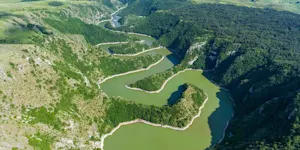What Makes This Word Tick
The word "forage" is an active little fellow, often associated with searching and gathering. Typically, it revolves around the idea of hunting for food or provisions. Its spirit captures both survival instincts and an adventurous spirit.
If Forage Were a Person…
If forage were a person, it might be a resourceful explorer with a knack for scavenging. Picture someone with a keen eye for detail, always ready to repurpose a rusty screw or a fallen leaf into something useful. They’d probably have a classic foraging basket on one arm, eyes scanning the landscape.
How This Word Has Changed Over Time
The word "forage" has long been tethered to the necessity of finding sustenance, dating back to its roots in medieval times when it described the act of feeding troops. Its definition has expanded slightly over the years, creeping into modern vernacular as part of sustainable food movements, as people now forage for culinary delights, not just survival.
Old Sayings and Proverbs That Use Forage
Though not as commonly found in old sayings, "forage" evokes the timeless proverb “necessity is the mother of invention.” It hints at the idea that when the cupboard’s bare, you’ll find a way to gather what’s needed.
Surprising Facts About Forage
Did you know that foraging has become a trendy hobby? Urban foragers scour city landscapes for edible plants, while mushroom hunting in the forest can be both sport and sustenance. There’s even a “Forage Rangers” group advocating for public food forests.
Out and About With This Word
Next time you're at a farmer's market or wandering through a woodland path, think of the word “forage.” It’ll remind you of the many hands and eyes that have searched far and wide to bring those goods from nature to your basket.
Pop Culture Moments Where Forage Was Used
“Foraging” has found its place in cooking shows and sustainability documentaries. It’s appeared in films like "Into the Wild," highlighting the blend of adventure and necessity behind the term, and heartwarming narratives around self-sufficiency.
The Word in Literature
In literature, forage often appears in tales of survival and exploration. It paints scenes of characters seeking nourishment in the wild or making do with the land’s bounty. It’s a word as likely to appear in frontier tales as in modern-day dystopian novels.
Moments in History with Forage
Through history, “forage” was key in wartime when armies relied on the surrounding land for food. During the American Civil War, both sides frequently had to forage for survival—an activity chronicled by many a soldier's diary.
This Word Around the World
Across the globe, cultures have their versions of foraging. In Japan, sansai (mountain vegetables) are foraged in spring, and in the Scandinavian countries, it’s common to forage for berries and mushrooms. The practice reflects resourcefulness anywhere hunger is present.
Where Does It Come From?
"Forage" hails from the Middle English "forage," via Old French, ultimately derived from the Latin "foder," meaning to feed. Its etymology echoes across centuries of hunting and gathering traditions.
How People Misuse This Word
Sometimes folks might say “forage” when they mean “scavenge.” Unlike scavenge, forage carries a more deliberate and purposeful connotation, rather than grabbing at leftovers.
Words It’s Often Confused With
Scavenge: More about collecting discarded items rather than purposeful searching.
Graze: Involves animals feeding on plants, but lacks the searching element.
Harvest: Though related, it specifically refers to gathering cultivated plants.
Additional Synonyms and Antonyms
Here are some synonyms: search, hunt, gather. For antonyms, consider plant or sow—activities that are the beginning of growing food rather than the search for it.
Want to Try It Out in a Sentence?
“After a long day of hiking, we decided to forage for wild berries in the forest, adding a touch of adventure to our campfire meal.”
















